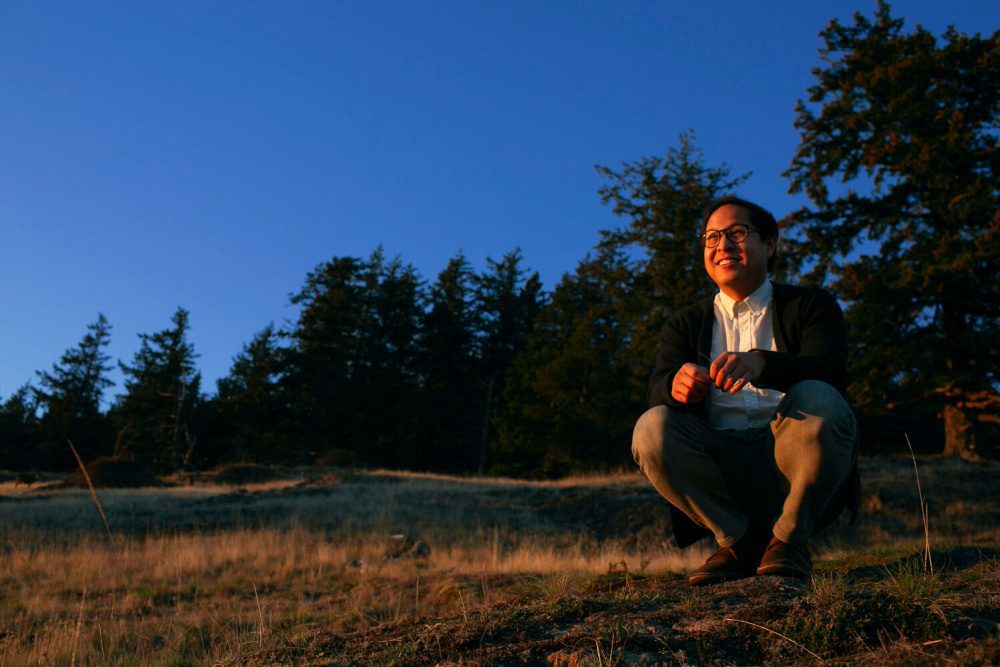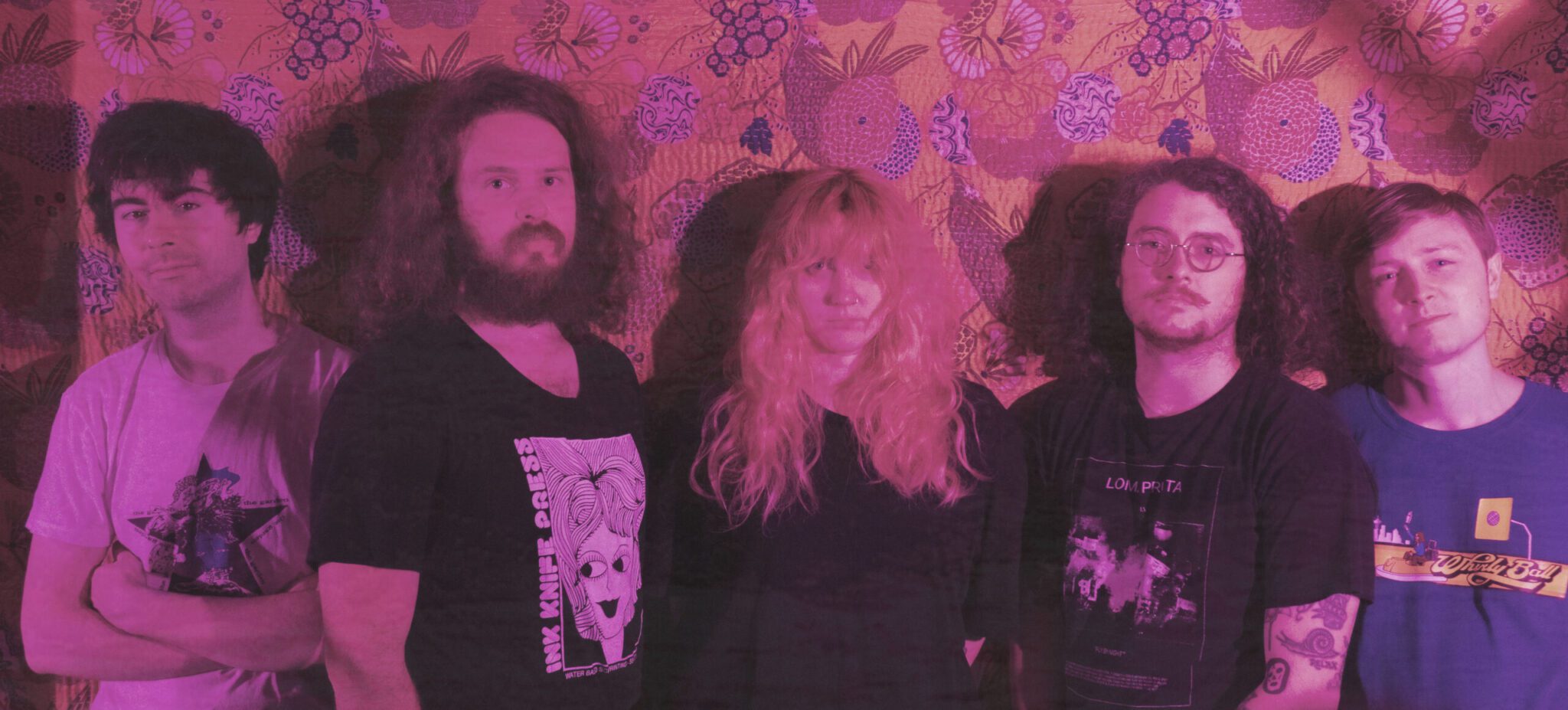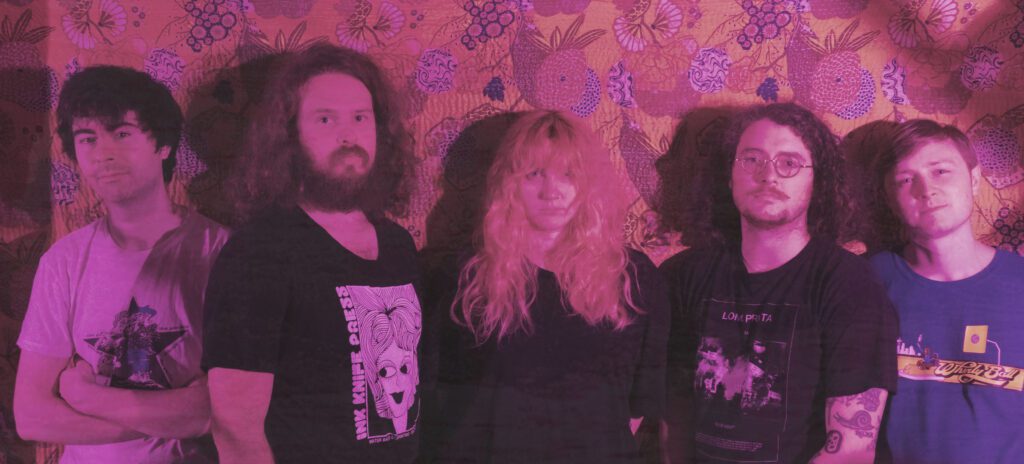

Anyone who thinks that the drum set is a one-trick pony surely hasn’t heard Seattle drummer Christopher Icasiano.
For more than a decade, Icasiano has been one half of the mercurial, genre-bending saxophone and drums duo, Bad Luck, and a frequent contributor to other beloved Pacific Northwest groups (including Pure Bathing Culture). Trained in jazz and improvisational music, Icasiano is unique in his ability to listen to his bandmates, his versatility, as well as his skill in harnessing the full potential of the drum set as both a backgrounding and foregrounding instrument.
His solo debut EP, Provinces, which he released in 2020 just days before the world shut down from COVID-19 pandemic, encapsulates many of the aspects that make Icasiano the person and drummer, so special. And, after several COVID-induced delays and cancellations over the last two years, Icasiano will present a re-release show celebrating Provinces on April 16th at Barboza, just a few weeks before he joins Fleet Foxes for their Summer 2022 tour. At the show, Icasiano will play the moving, exploratory record in its entirety, bringing his inventive approach to the drums, and his identity as a Filipino-American—to center-stage.
Icasiano was born and raised on the Eastside of Seattle, near Redmond, in a family that appreciated, and in his mother’s case, also played music. His parents bought him his first drum set when he was about eight years old. He continued to play throughout school, and eventually decided to attend University of Washington, where he was primarily focused in studying jazz. The tools he learned in jazz school continue to serve him, he says, but after he graduated, the elimination of rules and limits allowed Icasiano to more freely express himself—and embrace who he is.
“Coming out of UW, I think there were a lot of things that changed for me in that I was starting to get into music that wasn’t necessarily jazz, but improvised music,” he explains. “And that was definitely speaking to me a lot more because I was finding that I could be expressive in ways that felt less restricting, as well as being able to draw on a lot of other musical influences that I could put into that type of improvising.”
As he found himself musically, Icasiano says he still struggled with his identity as a second-generation Filipino-American. It isn’t shame, he says, but that the expression of his cultural roots almost always existed at home, in a vacuum. And, out in the world, he never felt like he fit in.
“I grew up in a Filipino family and was around Filipino things at every family gathering and in my everyday life. I didn’t really have Filipino friends or community outside of that, so it was an interesting experience for me in that my Filipino-ness only existed at home,” he says. “Outside of that it was just like, most all my friends for my entire life are white and have been and I had very few people I could [relate with about] being Filipino or even just about being Asian.”
Hence, for many years, Icasiano says he struggled with “not feeling Filipino enough” but he let those questions about identity simmer. Meanwhile, he played more solo drum shows.
“[Provinces] came kind of in different phases. For many years, I was playing solo drum performances and I was just kind of improvising with loose thematic ideas and I started thinking compositionally about how to approach a solo drum set and the different ways that drums can be applied to music in kind of unconventional ways,” says Icasiano.
From there, Icasiano applied for a couple of arts grants—and, as he wrote those grant proposals, his desire to better understand and contextualize his Filipino-American identity resurfaced.
“When I wrote the grant proposals they were really centered around exploring how to convey my cultural identity in my music and I do it through the drums in this way,” he recalls. “I ended up getting these grants so… I was able to go on a little writing retreat and [spend time] figuring out all of the melodic and harmonic material for the record.”
Sitting on the drum throne or at the keyboard, Icasiano says his mind was only on the music, but slowly, over the many months that the compositions were written, he noticed a stronger grip on himself and his artistry emerging. It helped too, that right after he finished the bulk of the record in 2018, he took his first trip to The Philippines, where he received more creative inspiration for the record and more understanding of his roots.
“My partner Jenny had suggested getting some field recordings in The Philippines and incorporating that into the music that I had recorded. What a perfect full circle thing to do, to write this record that is really about identity and connecting with culture and then finally getting the opportunity to go there shortly after that and being able to bring back a sonic artifact that I could then put back into the music,” Icasiano says.
Provinces, in its final form, is as tumultuous and triumphant as any successful quest for self-knowing is, as it takes snapshots of Icasiano, and the drums, from several different angles. At one point, his snare is soft and meandering like a flute, at other points, his sticks fall with sharp syncopation, ferocious like a Black Sabbath lick on guitar.
Auxiliary percussion, ambient keyboard, arranged and performed by himself—as well as his field recordings of subtle ocean sounds and the business of a Manila market—also bring a lushness and layered poignancy to every track. The mood aligns with how Icasiano feels reflecting on the project.
“There was so much of me up until [this release] that was like, ‘Oh, I have to do this record in this way to prove that I’m Filipino… After I put this record out, it felt really good to be able to put out a piece of art and music that was solely my own vision and to be like, oh, I don’t actually need to prove anything to anyone,” says Icasiano. “I am Filipino, even if grew up in Redmond and didn’t have Filipino friends. Even if I don’t speak Tagalog. Even if I’ve only been to the Philippines once when I was 33 years old. That’s all part of the experience of Filipinos around the world and it doesn’t make me any less so. I think it really did help me find more confidence in my own artistry.”
Follow Christopher Icasiano on Instagram for ongoing updates.



